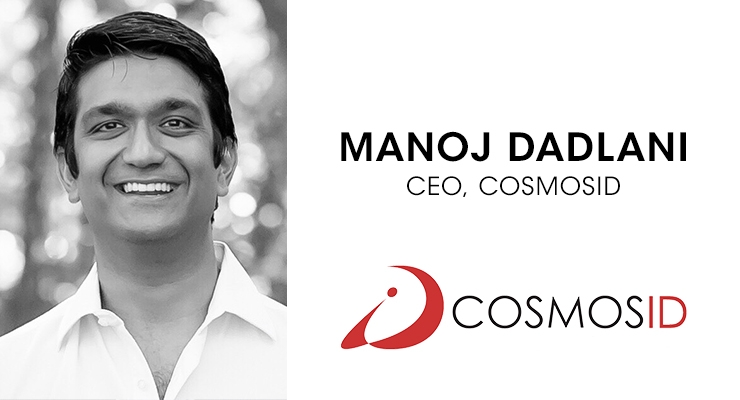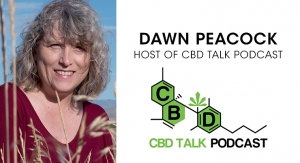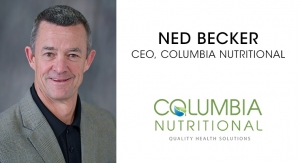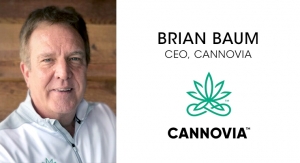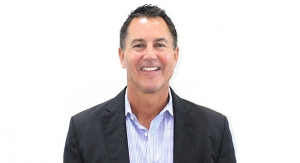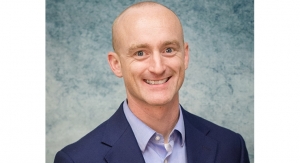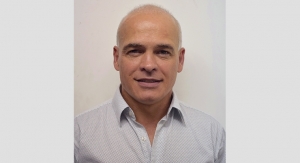By Sheldon Baker10.07.19
Previously, Dadlani served as a partner at Applied Value Group, a management consulting and investment firm, and was co-founder and CEO at Rasa Industries, Ltd., a leading beverage manufacturing company. Dadlani has substantial experience in strategy, mergers and acquisitions, supply chain management, product development, marketing and business development. He received his bachelors and master’s degrees in biological engineering from Cornell University.
Health E-Insights: CosmosID provides Next-Generation Sequencing (NGS) and Bioinformatics solutions. Please explain.
Dadlani: CosmosID is a microbial genomics company at its core and we're the industry leaders in rapid, high resolution identification and characterization of microorganisms. We offer software as well as end-to-end sequencing and analysis services optimized for pharmaceutical, nutritional R&D, food safety, and molecular diagnostics. We leverage over 10 years of experience and expertise in the field of microbiome analysis and support industry and academia across the entire NGS workflow, from study design to sample collection, extraction, library preparation, sequencing, bioinformatics, publication and regulatory support. What ultimately differentiates CosmosID is its bioinformatics platform. We've been continuously curating the world's largest reference database of microbial genomes as well as antimicrobial resistance and virulence data and our algorithms have been independently validated to quantitatively identify bacteria, viruses, fungi, and protists down to strain-level, with industry-leading sensitivity and precision. While conventional data analysis methods can take many hours per sample our platform returns results within minutes and directly into a user-friendly cloud application with robust interactive visualization tools. You can test out our platform by creating a free account at app.cosmosid.com.
Health E-Insights: Your company’s origin is an interesting one.
Dadlani: It certainly is. The company was founded in 2008 by Professor Rita Colwell; a world-renowned microbiologist and one of the foremost experts in environmental metagenomics. Her resume includes being an author of over 800 publications, 19 books; and Rita has received 64 honorary degrees. Outside of the world of research, Rita is mostly known in the public eye for having been the first female head of the National Science Foundation from 1998 to 2004, under the Clinton and Bush administrations. During her time, she and a team of experts were tasked with tracking the source of the anthrax outbreak in 2001. Tracking such outbreaks at that time was exceedingly difficult, given the tools at one’s disposal. This inspired Rita to develop a bioinformatics platform that could identify organisms down to the strain-level within complex microbiota samples to not only address future bio-threats but impact clinical microbiology and health-relevant industries and do so in a rapid and accurate manner. This was all based on an emerging technology at the time, one which we use regularly today, Whole-Genome Sequencing. Ten years later, the platform Rita had envisioned is the core of the CosmosID technology. It's commercialized and currently being used by hundreds of scientists around the world.
Health E-Insights: Do your services focus on supplements as well as pharmaceuticals?
Dadlani: Absolutely. We see a lot of crossover between these two industries in the context of microbiome R&D. Both industries are interested in the same questions and sample types when it comes to understanding the impact of nutrition, supplements, or novel drugs on our health and the gut, skin, oral, or vaginal microbiome. We just see it as two sides of the same coin. The difference is ultimately how the research will be applied and in what regulatory environment. There have been tremendous strides in the world of microbial genomics in the last few years and given the decreasing cost in NGS, there's been an explosion of interest and research being done in R&D for supplements and nutraceuticals. The exact application of that research looks very different depending on which company you speak to, but an example would be to discover novel nutritional supplements that modulate the microbiome to achieve a desired effect on health and wellness. This can be in the form of a pre- or probiotic, which are popular and obvious choices, but also through other extracts and natural ingredients. Another interesting application is to go back and look on your shelf of already existing products and ingredients and run a retrospective study on how they may be impacting the microbiome of consumers. Some products may be impacting the microbiome positively and you don't even know it. Additionally, this same technology is used in quality control of the strains that go into a probiotic. Using NGS, we can validate and quantify whether the right strains are actually in the products that consumers are buying and ensure that the labeling claims are correct.
Health E-Insights: What if any are the emerging trends in the microbiome category?
Dadlani: There are quite a few increasingly popular and emerging research areas in the microbiome such as sports nutrition and infant health, but one that's arguably the most exciting is the gut-brain axis. There's a tremendous amount of research emerging to suggest that through interactions with the host immune system or via various neurotransmitter-like metabolites, the microbiome could be having a major impact on mental health which means, if harnessed correctly, we could see a new wave of probiotic products developed specifically for conditions like stress, mood, and sleep disorders. We still have a way to go in terms of understanding which bugs impact our mood, for example, and how, but it's exciting to think that consumers may soon have more options when it comes to improving their mental health and well-being before having to take prescription medication.
Health E-Insights: Will advances in technology enhance what your company does?
Dadlani: Without a doubt. Our company leverages technologies developed NGS instrument providers such as Illumina and ThermoFisher and so as we start to see improvements and efficiencies introduced to the NGS workflow by emerging kits and products, we plan to continue improving the quality of data we provide to our customers, but do so in a more efficient and cost-effective manner. Currently, over 90% of the microbiome space relies on short-reading sequencing by instrument providers. But there are many in the industry that believe that long-read sequencing is the future, and for good reasons. Our bioinformatics platform is already compatible with this new data type and we're keeping a close eye on long-read sequencing as costs decrease so that we can leverage the CosmosID platform in other innovative ways.
Health E-Insights: What new competition do you envision within the next 3-5 years?
Dadlani: I’m incredibly excited about the nutraceutical space over the next five years. I feel that consumers are taking a much closer look at their how supplements can improve their well-being and are spending serious dollars on products that they feel are beneficial. My prediction in the space is that as consumers become more educated the supplement companies that will win are those who have invested in studies to show stronger scientific data to back their claims. Additionally, lifestyle diagnostic tests, will also guide consumers in personalization of their nutraceutical choices. From a competitive landscape, I think we’ll see companies that embrace transparency in their trials, as well as embrace personalization to lead the pack.
Health E-Insights: What excites you most about what you do?
Dadlani: We’re fortunate to be part of a game-changing technological revolution in microbiology. Today, using DNA sequencing, we’re able to view microorganisms that previously could not be cultured or studied and understand their effects on improving human health. As a biological engineer, being able to translate this new knowledge into businesses and products that can aid in improving general health and possibly curing diseases is what keeps me excited every day.
Health E-Insights: Can you name a person who has had a tremendous impact on you as a leader?
Dadlani: It would be hard for me to just name one person here, so I’ll take the liberty to name two. The first one is Dr. Dan Luo, my research advisor at Cornell University in the department of Biological and Environmental Engineering. He taught me that you can apply biology to solve engineering problems in ways that do not apply to traditional biology paradigms. An example of his work is using DNA as a synthetic material to deliver a drug and evade traditional human immune responses, rather than as a traditional vector of genetic code. Overall, he has taught me to push the boundaries in problem solving and think out of the box to find solutions. The other person that has impacted me significantly as a leader is Bruce Grant, the founder and chairman of the Applied Value Group, the organization I joined after graduating from Cornell. The two fundamental principles that Bruce always taught are to make data driven decisions that allow us to always be fact-based and how to efficiently grow an organization through the key principles of lean growth: focus, simplicity, and speed.
Sheldon Baker is CEO of the Baker Dillon Group LLC and has created numerous nutraceutical brand marketing communications and public relations campaigns for many well-known supplement and food industry companies. For Health E-Insights interview consideration or brand marketing consulting, contact him at SBaker@BakerDillon.com.
Health E-Insights: CosmosID provides Next-Generation Sequencing (NGS) and Bioinformatics solutions. Please explain.
Dadlani: CosmosID is a microbial genomics company at its core and we're the industry leaders in rapid, high resolution identification and characterization of microorganisms. We offer software as well as end-to-end sequencing and analysis services optimized for pharmaceutical, nutritional R&D, food safety, and molecular diagnostics. We leverage over 10 years of experience and expertise in the field of microbiome analysis and support industry and academia across the entire NGS workflow, from study design to sample collection, extraction, library preparation, sequencing, bioinformatics, publication and regulatory support. What ultimately differentiates CosmosID is its bioinformatics platform. We've been continuously curating the world's largest reference database of microbial genomes as well as antimicrobial resistance and virulence data and our algorithms have been independently validated to quantitatively identify bacteria, viruses, fungi, and protists down to strain-level, with industry-leading sensitivity and precision. While conventional data analysis methods can take many hours per sample our platform returns results within minutes and directly into a user-friendly cloud application with robust interactive visualization tools. You can test out our platform by creating a free account at app.cosmosid.com.
Health E-Insights: Your company’s origin is an interesting one.
Dadlani: It certainly is. The company was founded in 2008 by Professor Rita Colwell; a world-renowned microbiologist and one of the foremost experts in environmental metagenomics. Her resume includes being an author of over 800 publications, 19 books; and Rita has received 64 honorary degrees. Outside of the world of research, Rita is mostly known in the public eye for having been the first female head of the National Science Foundation from 1998 to 2004, under the Clinton and Bush administrations. During her time, she and a team of experts were tasked with tracking the source of the anthrax outbreak in 2001. Tracking such outbreaks at that time was exceedingly difficult, given the tools at one’s disposal. This inspired Rita to develop a bioinformatics platform that could identify organisms down to the strain-level within complex microbiota samples to not only address future bio-threats but impact clinical microbiology and health-relevant industries and do so in a rapid and accurate manner. This was all based on an emerging technology at the time, one which we use regularly today, Whole-Genome Sequencing. Ten years later, the platform Rita had envisioned is the core of the CosmosID technology. It's commercialized and currently being used by hundreds of scientists around the world.
Health E-Insights: Do your services focus on supplements as well as pharmaceuticals?
Dadlani: Absolutely. We see a lot of crossover between these two industries in the context of microbiome R&D. Both industries are interested in the same questions and sample types when it comes to understanding the impact of nutrition, supplements, or novel drugs on our health and the gut, skin, oral, or vaginal microbiome. We just see it as two sides of the same coin. The difference is ultimately how the research will be applied and in what regulatory environment. There have been tremendous strides in the world of microbial genomics in the last few years and given the decreasing cost in NGS, there's been an explosion of interest and research being done in R&D for supplements and nutraceuticals. The exact application of that research looks very different depending on which company you speak to, but an example would be to discover novel nutritional supplements that modulate the microbiome to achieve a desired effect on health and wellness. This can be in the form of a pre- or probiotic, which are popular and obvious choices, but also through other extracts and natural ingredients. Another interesting application is to go back and look on your shelf of already existing products and ingredients and run a retrospective study on how they may be impacting the microbiome of consumers. Some products may be impacting the microbiome positively and you don't even know it. Additionally, this same technology is used in quality control of the strains that go into a probiotic. Using NGS, we can validate and quantify whether the right strains are actually in the products that consumers are buying and ensure that the labeling claims are correct.
Health E-Insights: What if any are the emerging trends in the microbiome category?
Dadlani: There are quite a few increasingly popular and emerging research areas in the microbiome such as sports nutrition and infant health, but one that's arguably the most exciting is the gut-brain axis. There's a tremendous amount of research emerging to suggest that through interactions with the host immune system or via various neurotransmitter-like metabolites, the microbiome could be having a major impact on mental health which means, if harnessed correctly, we could see a new wave of probiotic products developed specifically for conditions like stress, mood, and sleep disorders. We still have a way to go in terms of understanding which bugs impact our mood, for example, and how, but it's exciting to think that consumers may soon have more options when it comes to improving their mental health and well-being before having to take prescription medication.
Health E-Insights: Will advances in technology enhance what your company does?
Dadlani: Without a doubt. Our company leverages technologies developed NGS instrument providers such as Illumina and ThermoFisher and so as we start to see improvements and efficiencies introduced to the NGS workflow by emerging kits and products, we plan to continue improving the quality of data we provide to our customers, but do so in a more efficient and cost-effective manner. Currently, over 90% of the microbiome space relies on short-reading sequencing by instrument providers. But there are many in the industry that believe that long-read sequencing is the future, and for good reasons. Our bioinformatics platform is already compatible with this new data type and we're keeping a close eye on long-read sequencing as costs decrease so that we can leverage the CosmosID platform in other innovative ways.
Health E-Insights: What new competition do you envision within the next 3-5 years?
Dadlani: I’m incredibly excited about the nutraceutical space over the next five years. I feel that consumers are taking a much closer look at their how supplements can improve their well-being and are spending serious dollars on products that they feel are beneficial. My prediction in the space is that as consumers become more educated the supplement companies that will win are those who have invested in studies to show stronger scientific data to back their claims. Additionally, lifestyle diagnostic tests, will also guide consumers in personalization of their nutraceutical choices. From a competitive landscape, I think we’ll see companies that embrace transparency in their trials, as well as embrace personalization to lead the pack.
Health E-Insights: What excites you most about what you do?
Dadlani: We’re fortunate to be part of a game-changing technological revolution in microbiology. Today, using DNA sequencing, we’re able to view microorganisms that previously could not be cultured or studied and understand their effects on improving human health. As a biological engineer, being able to translate this new knowledge into businesses and products that can aid in improving general health and possibly curing diseases is what keeps me excited every day.
Health E-Insights: Can you name a person who has had a tremendous impact on you as a leader?
Dadlani: It would be hard for me to just name one person here, so I’ll take the liberty to name two. The first one is Dr. Dan Luo, my research advisor at Cornell University in the department of Biological and Environmental Engineering. He taught me that you can apply biology to solve engineering problems in ways that do not apply to traditional biology paradigms. An example of his work is using DNA as a synthetic material to deliver a drug and evade traditional human immune responses, rather than as a traditional vector of genetic code. Overall, he has taught me to push the boundaries in problem solving and think out of the box to find solutions. The other person that has impacted me significantly as a leader is Bruce Grant, the founder and chairman of the Applied Value Group, the organization I joined after graduating from Cornell. The two fundamental principles that Bruce always taught are to make data driven decisions that allow us to always be fact-based and how to efficiently grow an organization through the key principles of lean growth: focus, simplicity, and speed.
Sheldon Baker is CEO of the Baker Dillon Group LLC and has created numerous nutraceutical brand marketing communications and public relations campaigns for many well-known supplement and food industry companies. For Health E-Insights interview consideration or brand marketing consulting, contact him at SBaker@BakerDillon.com.

